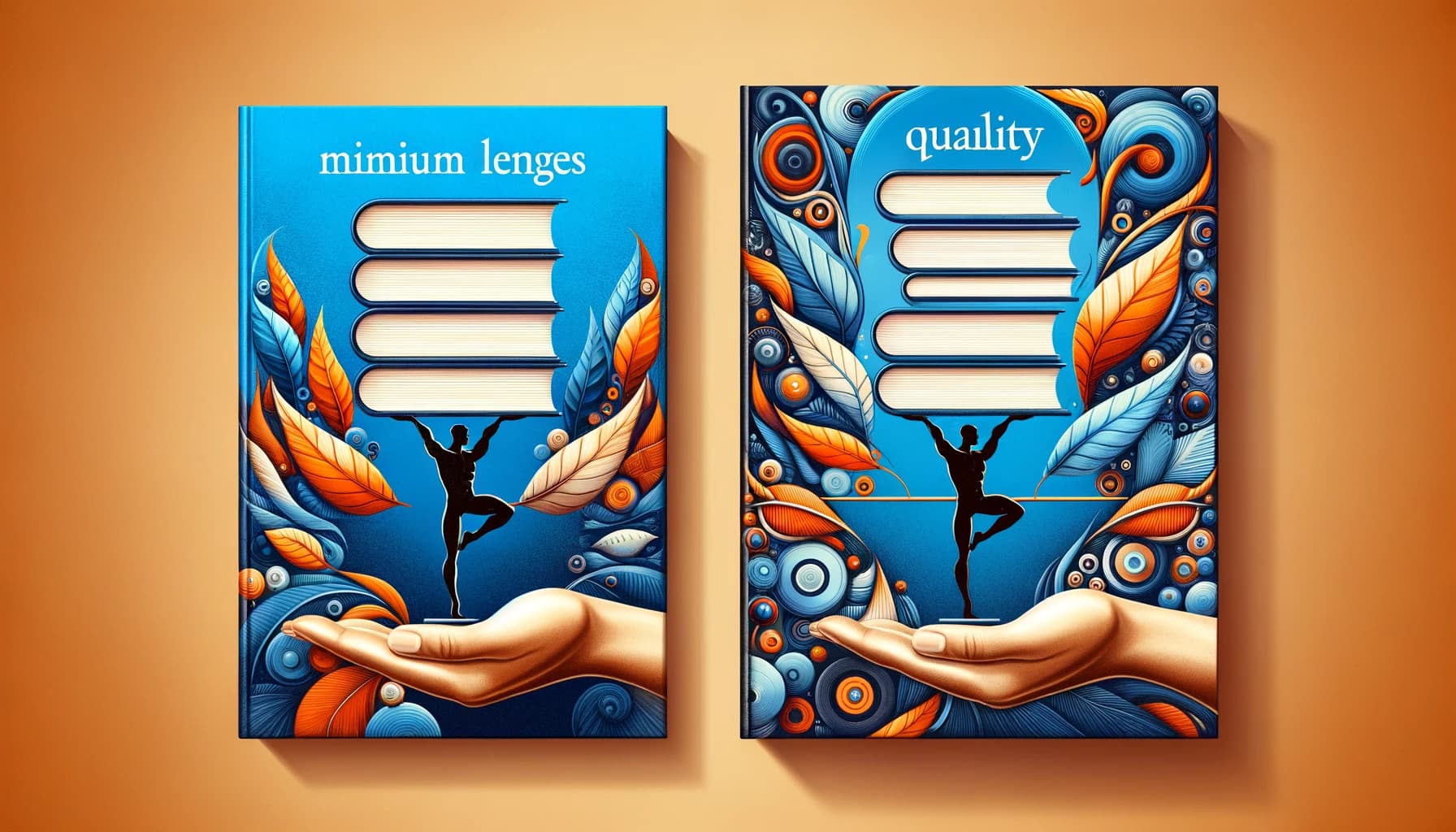Table of Contents
Navigating the world of writing contests can feel overwhelming for indie authors. With so many options available, it’s easy to get lost in the details or doubt whether your work is good enough to compete. You’re not alone in this struggle; many writers face similar fears and uncertainties.
But don’t worry! If you stick around, we’ll explore the ins and outs of writing contests and show you how they can be a game-changer for your writing career. From finding the right contests to tips on what judges are really looking for, you’ll discover valuable insights that can make a difference.
We’ll also look at common pitfalls to avoid and share inspiring success stories from fellow indie authors who have taken the plunge and flourished. Your writing journey is about to get a boost!
Key Takeaways
- Entering writing contests can boost your credibility and help you get noticed by readers and publishers.
- Read submission guidelines carefully; following them can be the key to success.
- Editing your work is crucial; polished entries are more appealing.
- Look for genre-specific contests to target the right audience for your writing.
- Networking with other writers can open doors to new contest opportunities.
- Learn from past contest winners to understand what judges prefer.
- Don’t be discouraged by rejections; many successful authors faced them before succeeding.

Best Writing Contests for Indie Authors
If you’re an indie author looking to get your work noticed, writing contests can be an exciting avenue to explore.
Some of the most reputable contests for indie authors include the Writers of the Future contest and the Paranormal Romance Guild’s writing contest, where you can showcase your writing and gain recognition.
Keep an eye on genre-specific contests too, like the Horror Writers Association contests, which can put your unique voice in front of the right audience.
Benefits of Entering Writing Contests
Entering writing contests can do wonders for your writing career, offering various perks that go beyond just the prize money.
Winning or placing in a contest can boost your credibility as an author, making you more appealing to potential readers and publishers.
Moreover, contests often provide critical feedback, which can help refine your craft.
In addition to improving your writing skills, contests increase your visibility in the literary community, as winners are often highlighted in publications and online platforms.
Plus, you might just land a literary agent or publisher interested in your work after they see your contest entry.
Tips for Winning Writing Contests
Want to increase your chances of winning a writing contest? Start by carefully reading the submission guidelines; following them accurately is crucial.
Next, tailor your entry to match the contest’s theme or genre, as this shows the judges your ability to write for a specific audience.
Don’t underestimate the power of editing; polishing your work can make a huge difference in clarity and impact.
Getting feedback from friends or a writing group before submission can also offer valuable insights and catch mistakes you might have missed.
Lastly, keep an eye on past winners’ entries to understand what resonates with the judges; this can provide inspiration for your own submission.

How to Find Writing Contests for Indie Authors
Finding writing contests specifically for indie authors is easier than you might think.
Start by searching online through dedicated websites like listings of writing contests to get a broad overview.
Social media platforms can also be a goldmine; follow publishing houses or author groups on platforms like Twitter and Facebook for announcements.
Networking with other writers can lead you to contests they’ve found useful, so don’t hesitate to ask around.
Also, consider subscribing to newsletters from literary organizations, as they often share upcoming contest opportunities.
Lastly, keep an eye on literary magazines and websites, as many include contest announcements in their publications or on their sites.
Genres and Categories for Writing Contests
Writing contests often have various genres and categories to enter, which can cater to your specific style.
Common categories include fiction, non-fiction, poetry, and screenwriting, each with subgenres like romance, sci-fi, or horror.
For instance, if you’re a fan of spooky tales, you might want to check out horror contests like those from the Horror Writers Association.
There’s even a growing trend for niche categories like flash fiction or essays on social justice, allowing unique voices to shine.
Make sure to read the contest description carefully; it will guide you on which genre fits best for your work.
Don’t hesitate to explore new genres either; stepping outside your comfort zone can lead to creative breakthroughs.
Submission Guidelines for Writing Contests
Understanding submission guidelines is crucial when entering writing contests.
Each contest might have different rules regarding word count, formatting, and deadlines.
Always read the guidelines thoroughly before preparing your submission to avoid common pitfalls.
Many contests require specific file types (like .doc or .pdf) and formatting details such as font type and size.
Pay attention to the age restrictions or geographical limitations, as some contests are only open to specific demographics.
If a contest asks for a bio or cover letter, make sure you have that ready and tailored to the contest requirements, as it can make a lasting impression.
Lastly, don’t forget to double-check the submission deadlines; being late can lead to instant disqualification!
Common Mistakes to Avoid in Writing Contests
Many writers fall into the same traps when entering contests, which can easily be avoided.
First and foremost, ignoring the guidelines can lead to disqualification; always follow the rules closely.
Another common mistake is submitting work that hasn’t been thoroughly edited; typos and grammatical issues can make your story less appealing.
Also, don’t submit your work to a contest without understanding the intended audience; it’s vital to align your entry with the judges’ preferences.
In some cases, writers might not market their contest entries effectively; consider sharing your submission on social media (if allowed) to gain more visibility.
Lastly, don’t be discouraged if you don’t win; many successful authors experienced multiple rejections before achieving success in contests.
Success Stories of Indie Authors in Contests
There are countless tales of indie authors who skyrocketed their writing careers through contests.
For instance, a writer named Sarah entered a national short story contest and ended up receiving not just accolades but also a publishing deal.
Another author, Mike, had his novella recognized in a local contest, which led to invitations for talks and signings, greatly enhancing his visibility.
Winning a contest can provide more than just a trophy; it can build credibility and expand your network.
Reading these success stories can also inspire you and provide insights into what the judges are looking for.
So take note of these journeys; they might just encourage you to submit your own work!
Resources for Indie Authors and Writing Contests
Finally, having the right resources can make your contest experience smoother and more fruitful.
Websites like Automate Ed offer a wealth of information on various contests and tips for aspiring authors.
Consider investing in books about writing and contest strategies; they often include useful advice from experienced authors.
Joining writing groups, either locally or online, can provide encouragement and updates on new contests, plus it’s a great place to share feedback.
Don’t underestimate the power of workshops, where you can refine your writing and get insights on what makes a strong contest entry.
Lastly, keep a calendar for contest deadlines to stay organized and ensure you don’t miss any opportunities!
FAQs
Entering writing contests can enhance visibility, provide networking opportunities with industry professionals, and offer potential publication or cash prizes. It can also motivate writers to improve their craft and gain valuable feedback on their work.
You can find contests by browsing websites dedicated to writers, literary magazines, and social media groups focused on indie authors. Additionally, resources like writing apps or newsletters often list upcoming contests relevant to indie writers.
Common mistakes include failing to follow submission guidelines, submitting work that’s not proofread, or entering contests not suited to your genre. Also, many overlook networking opportunities or don’t learn from feedback received after the contest.
Many indie authors have gained recognition after winning contests, leading to book deals or increased readership. Success stories highlight how contests offer a platform for unique voices and allow authors to elevate their careers significantly.



